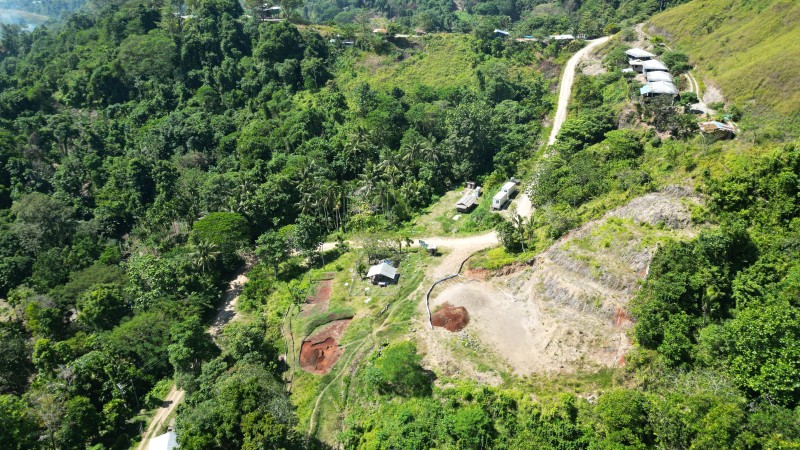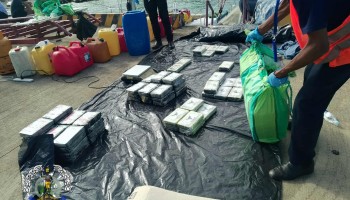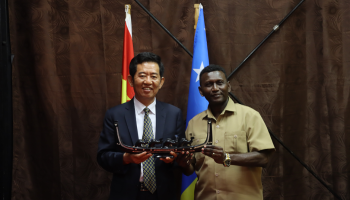Reported by
The CEO of Solomon Islands’ state-owned water utility has resigned, along with a board member, amid government pressure to re-engage an Indian company which failed to build a $20-million facility that is two years overdue.
OCCRP and its member center, In-Depth Solomons, revealed in 2024 that an Indian joint venture called Rean Watertech repeatedly missed deadlines, and failed to carry out planned work on a plant to supply clean water to the Pacific island nation’s capital, Honiara.
The Solomon Islands Water Authority, known as Solomon Water, initiated the plan to build the facility after heavy rains overwhelmed Honaira’s decrepit water treatment system in 2014. The floods spread water-born diseases that killed over a dozen people, and struck thousands more with diarrheal disease.
The Asian Development Bank (ADB) backed the initiative, but pressured Solomon Islands Water to choose Rean Watertech, according to people involved in the project. The company had failed to disclose that it was in the process of being sanctioned for non-performance on a series of ADB-funded projects in India, OCCRP and In-Depth Solomons reported.
Solomon Water terminated its contract with Rean for non-performance in late 2023, leading Rean Watertech to sue to have its contract reinstated. The case is still before the courts.
The ADB declined to comment, citing the ongoing court case. In 2024, ADB declined to answer specific questions about the project or why it was awarded to the Indian joint venture, but said it had not "debarred" Rean, which was "eligible to participate in ADB-financed projects and activities.”
Rean did not respond to questions at that time, or about the ongoing court case.
On October 17, the Ministry of Mines, Energy and Rural Electrification sent Solomon Water a directive ordering the state-owned company to settle the case and resume working with Rean.
Three days later, Solomon Water CEO Carmine Piantedosi and board member Alan McNeil both resigned. Reporters obtained their resignation letters.
“I have become increasingly uncomfortable with the undue pressure being placed on the CEO to re-engage Rean Water Tech for the Kongulai water treatment plant project,” McNeil wrote.
In his letter, Piantedosi said he had been subjected to citing “allegations and unwarranted treatment” by the water authority’s board.
Contacted by reporters, Piantedosi declined to elaborate on what allegations were made, or what treatment he received.
In its October 17 directive to the Solomon Islands Water Authority, or SIWA, the energy ministry told Piantedosi that “the current trajectory of the project under your leadership… has caused serious concerns.”
“It is in the national interest that SIWA settles the current legal dispute amicably outside of court and re-engages REAN Water Tech to bring the Kongulai water project back on track,” said the directive, which was signed by Derrick Manuari, the energy minister.
Manuari denied that he was intervening on Rean’s behalf.
“I think it is wrong to imply that I support Rean,” he told OCCRP. “I made my directive based on advice given to me.”
In his directive, Manuari noted that ADB financing is due to end in 2028, adding that putting a new tender out and hiring a new company would be “time-prohibitive.”
However, questions remain about why Rean won the bid in the first place. Documents obtained by reporters showed that the $15.6-million bid submitted by Rean was nearly $5 million lower than its nearest competitor, and 20 percent cheaper than Solomon Water’s own $19.6 million estimate.
In an early evaluation of the bid, submitted to ADB in 2022, Solomon Water raised concerns that $15.6 million would not even cover the necessary equipment and materials. The report recommended the bid be rejected.
The project went ahead anyway, with Ream at the helm. But today, the plant is two years behind schedule and no substantial work has been done.
In July this year, local health authorities reported that 3,000 people were infected in an outbreak of diarrhea in the capital. Dozens of children were hospitalized.





.jpg/d9292de12978009a64a9c800764c00e2/gramps-final-(1).jpg)
